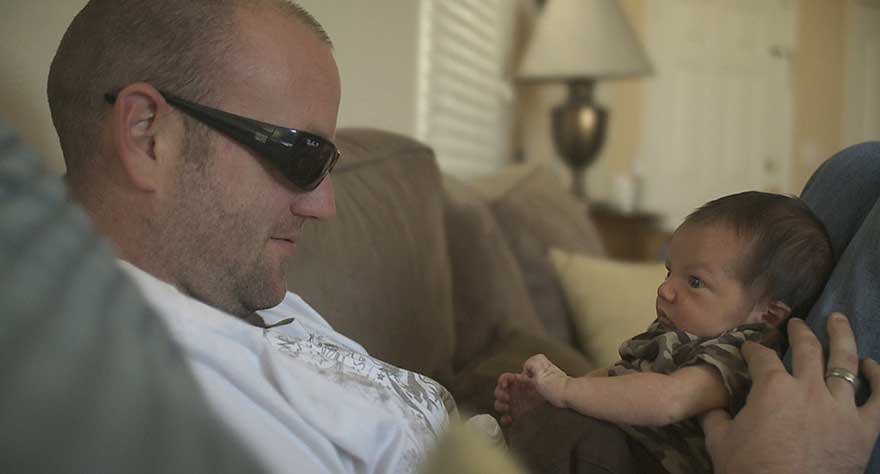
A harrowing, powerful documentary about soldiers suffering from PTSD that places emotions at the forefront.

A harrowing, powerful documentary about soldiers suffering from PTSD that places emotions at the forefront.
With the amount of middlebrow, “journalistic” documentaries putting information first that come out of the woodwork every year to score some trophies, it’s easy to laud a documentary for being nothing more than an alternative. Praising a documentary can sometimes amount to doing a hypothetical comparison with a “bad” version of the same thing, pointing out what it doesn’t do rather than what it actually does; no talking heads, no overbearing score, no reliance on animations, no bad re-enactments, and other usual suspects when watching nonfiction. But this can be a lazy and reductive way to evaluate a film, undermining its actual achievements. A film like Laurent Bécue-Renard’s Of Men and War can easily make people fall into this trap, given its apolitical approach to a political topic. Using a vérité style that naturally brings Frederick Wiseman’s films to mind, Bécue-Renard’s film is initially surprising in how it places emotions—along with the act of confronting emotions—at the forefront. And by doing so, Bécue-Renard creates a powerful glimpse at the struggles of dealing with PTSD.
Bécue-Renard spent over six years filming Of Men and War, starting off by gaining access to The Pathway Home, a therapy centre in California that helps soldiers suffering from PTSD. This included filming the home’s intense group therapy sessions, where veterans (mostly from Iraq and/or Afghanistan) graphically describe their horrors from war that still haunt them. These sequences dominate the film with how harrowing and disturbing descriptions of death and destruction. The stories they tell tend to have a cinematic quality in the way they describe them, but it’s the graphic, realistic details that stick with them. One soldier talks about noticing a young man as a potential threat and taking him out, then sheds tears as he remembers part of the man’s brain falling on his boot as the body was getting put into a body bag. He remembers the body’s eye—the only one remaining—staring at him. While he fights through his tears, it’s apparent that he’s also holding back pure anger at the same time.
What’s interesting about these sequences, and why their impact is so strong, is the way Bécue-Renard films his subjects to highlight the despair of their situation. The soldiers sit around a table with the group therapist moderating the session, but Bécue-Renard sits behind the therapist. The therapist’s face is rarely shown, with the camera honing in on close-ups of the soldiers instead. The composition of the therapy scenes only heightens the isolation of these men, emphasizing their feelings of suffering in solitude. When Bécue-Renard cuts away to a reaction shot it’s only to the other soldiers in the room, the only other people in the room who can have empathy or an understanding of what everyone else is going through. Bécue-Renard’s direction shows off how impossible it is for viewers to be able to fully comprehend these soldiers’ pain while observing them with a distance that feels both justified and respectful.
Beyond the therapy sessions, scenes of the soldiers back home trying to live their daily lives add moments of levity and anxiety, depending on how well they’re handling a social or familial situation (when one soldier and his wife try to be friendly with another couple at a bar, it’s crushing to see how hard he’s trying to just act sociable). Bécue-Renard only focuses on the soldiers who have wives and/or children when he takes his camera away from The Pathway Home, a choice that feels deliberate in showcasing how high the stakes are for some of the subjects. Placed next to the therapy sessions, the scenes of what can sometimes look like basic family life take on a new context, framing every action or interaction as a constant struggle. Yet Of Men and War, while unflinching in its observation of the hardships that come with trying to deal with and potentially move on from intense trauma, provides a hopeful (and realistic) outlook. It shows the power and necessity of openness and communication with the healing process, and how the simple act of trying to better oneself is sometimes all it takes to make it happen.